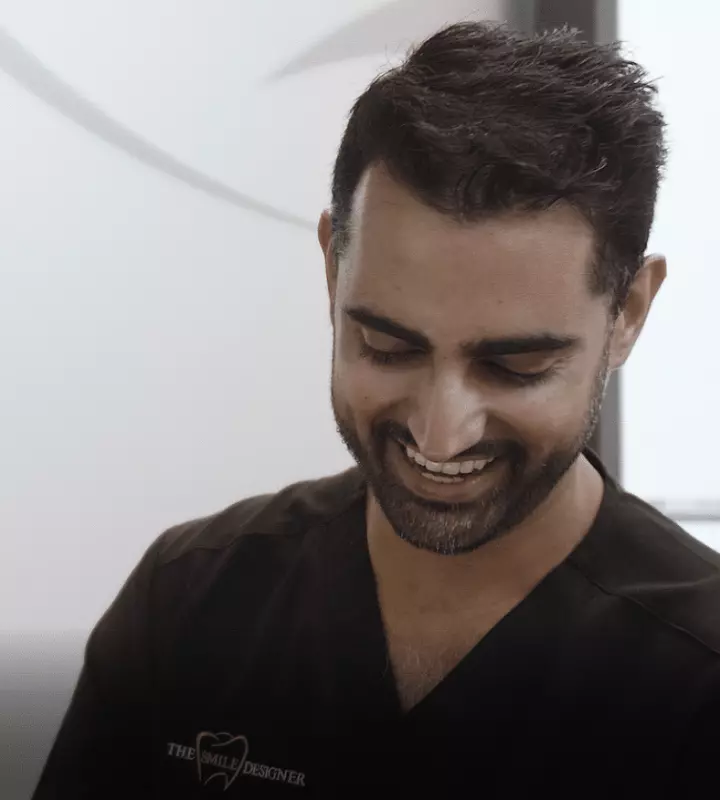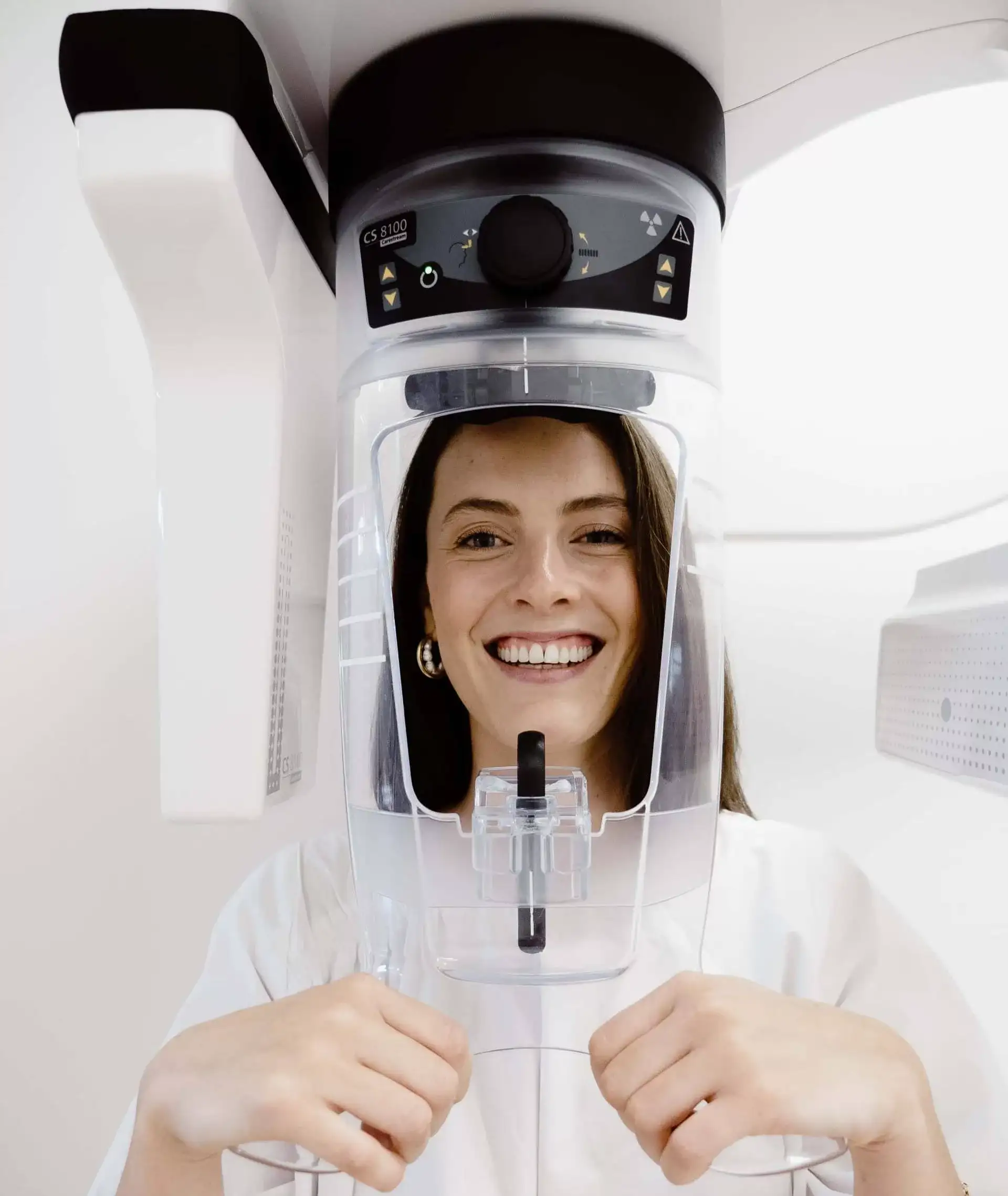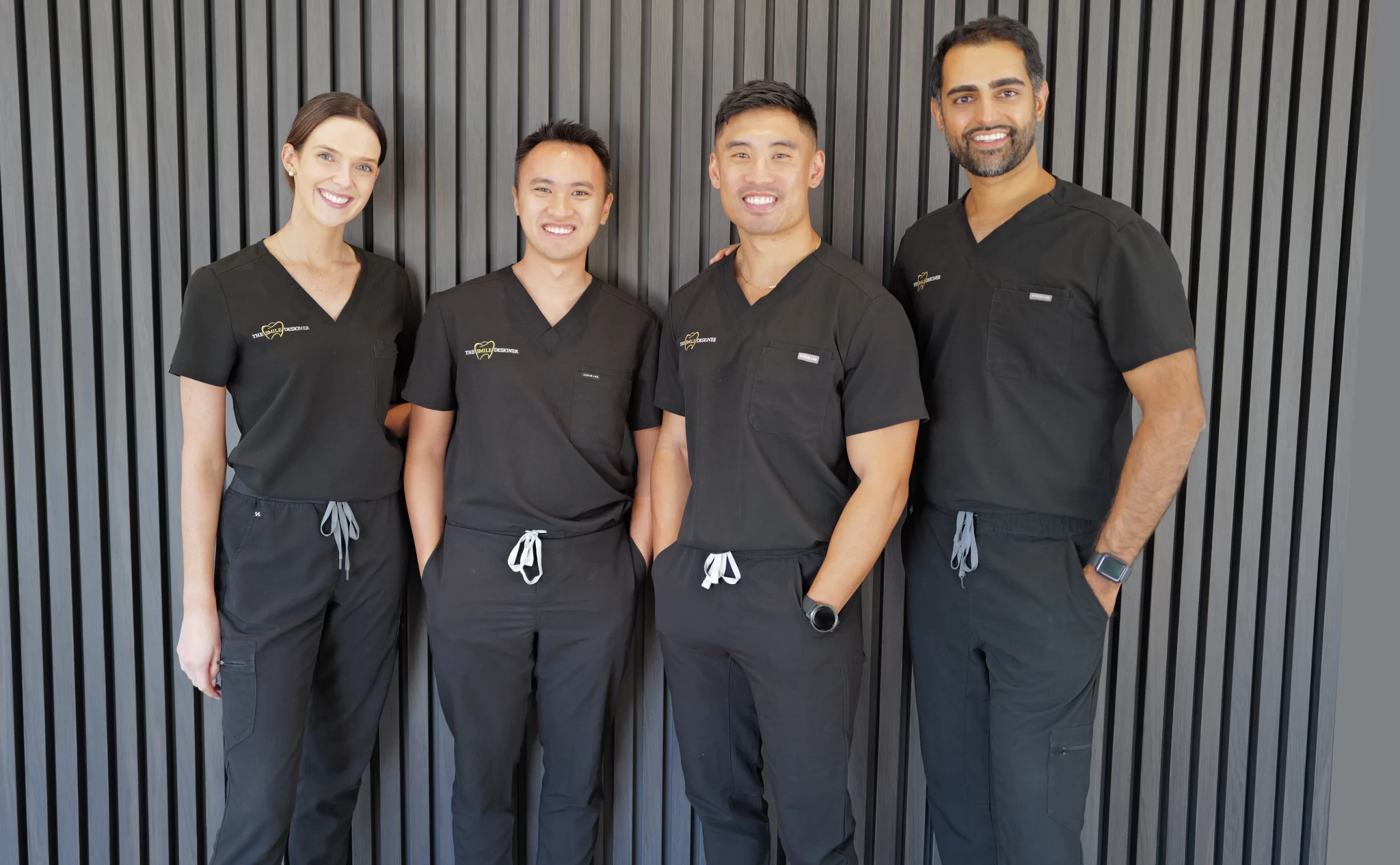A Complete Guide to Dental Implants for 2023 – All Your Questions Answered
What are dental implants, and how do they work?
Dental implants are small titanium posts that are surgically placed into the jawbone to serve as a replacement for missing teeth. The posts fuse with the jawbone over time, providing a strong and stable foundation for artificial teeth. Once the implants have fused with the jawbone, artificial teeth can be attached to the posts. Dental implants are popular for tooth replacement because they look and function like natural teeth. In addition, dental implants do not rely on surrounding teeth for support, unlike dentures and bridges. As a result, dental implants can help preserve adjacent teeth’ health.
The benefits of dental implants over other tooth replacement methods
Tooth loss is a common problem, affecting millions of Australians. While there are several options for replacing missing teeth, dental implants are often considered the best solution.The loss of a tooth can be a traumatic experience, both emotionally and physically. In addition to cosmetic concerns, missing teeth can lead to eating and speaking difficulties. Fortunately, many options are available for replacing missing teeth, including dentures, bridges, and implants. Of all the available choices, dental implants offer the most benefits. Unlike dentures and bridges, which rely on the surrounding teeth for support, whilst Implants are permanently anchored to the jawbone, providing a firm foundation for artificial teeth. In addition, implants help to preserve bone mass and prevent gum tissue from receding. This provides a strong foundation for the new tooth and helps preserve the bone structure. Unlike dentures, implants do not need to be removed for cleaning, allowing patients to eat and speak confidently. For these reasons, dental implants are often the best solution for patients seeking to restore their smiles. In addition, implants are very durable and can last a lifetime with proper care.

How much do dental implants cost?
Dental implants are a popular and effective way to replace missing teeth. They are also costly, with the average cost ranging from $1,000 to $3,000 per tooth. This high price tag is because dental implants require surgical and dental work. The surgery is relatively straightforward, but a skilled dentist must perform it with dental implant experience and knowledge. In addition, the dental work required to attach the implant to the jawbone can be very complex. As a result, the overall cost of dental implants can be relatively high. However, many patients feel that the benefits of implants outweigh the costs. Dental implants are strong and durable and can last for many years with proper care. In addition, they look and function just like natural teeth. For these reasons, many people feel dental implants are worth the investment.
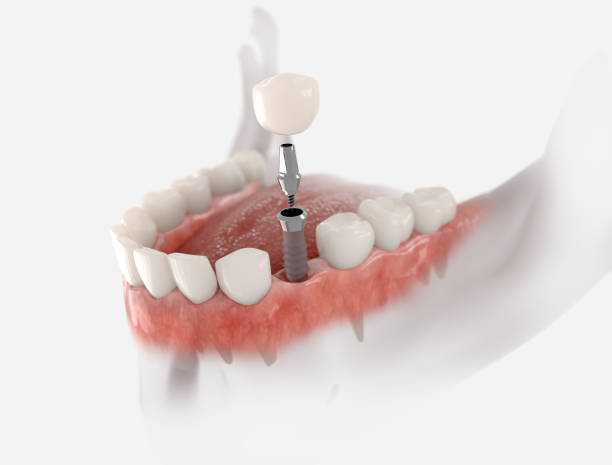
What are the steps involved in dental implant surgery?
Dental implants are a popular and effective way to replace missing teeth. The dental implant process is a multi-step procedure where the surgery is typically performed in three steps: placement of the implant, abutment placement, and tooth placement.
In melbourne’s cosmetic & general dental studio, The first step is to remove any damaged or diseased teeth from the mouth then the metal implant post is placed in the jawbone. The post is made of titanium, a solid and durable metal accepted by the body. This is done through a small incision in the gum line. Once the implant is in place, the incision is closed with stitches, and the jawbone will need to heal around it. The implant will then need to heal for several weeks to months before the next step can be performed.
Next, an abutment will be placed on top of the implant. The abutment is what will eventually support the new tooth. This step is also done through a small incision in the gum line. Once the abutment is in place, the incision is closed with stitches.
Finally, the new prosthetic tooth will be placed on top of the abutment. This tooth will look and function just like a natural tooth. The prosthesis can be either a false tooth or a set of false teeth. With proper care, dental implants can last a lifetime. Implants can provide patients with a long-term solution to their tooth loss problems.
What are the different types of dental implants?
Dental implants are made of titanium and are shaped like small screws. They are placed into the jawbone to act as replacements for missing teeth. The three main types of dental implants are endosteal, subperiosteal, and zygomatic.
Endosteal implants are the most common type of dental implant and are placed directly into the jawbone; it takes 3-6 months to heal.
Subperiosteal implants are placed under the gum but on top of the jawbone; they are less stable but do not require as much bone for support; lastly, the zygomatic implants are placed in the cheekbone; used for patients who do not have enough bone in their jaws for endosteal or subperiosteal implants. All three types of dental implants need a few months to heal before a prosthetic tooth can be placed on top. All three types of dental implants must be taken care of with regular brushing and flossing to prevent infection.

Dentures Vs. Dental Bridges Vs. Implants
Dentures have been around for centuries and are still the most popular solution for missing teeth. Dentures are made to fit snugly over the gums and can be removed for cleaning. They are a good option for people who have lost all their natural teeth.
Another popular option for missing teeth that patients opt for is Dental bridges. Bridges fill the gap created by one or more missing teeth. They are usually made of porcelain or ceramic and are attached to the natural teeth on either side of the gap. Implants are the most expensive and permanent solution for missing teeth. Implants are metal screws that are surgically implanted into the jawbone. Dentures and bridges can be a good option for people who have lost some natural teeth. However, implants are the best solution for those who have lost all their natural teeth.
Who is a good candidate for dental implants?
Who is the best candidate for a single implant: The best candidate for a single dental implant is typically a healthy adult who has lost a tooth due to an injury, trauma, or periodontal disease. The ideal candidate will also have sufficient bone density in the jaw to support the implant. In addition, the candidate must be committed to maintaining good oral hygiene and attending regular dental appointments. Those who smoke or have diabetes or other chronic health conditions may not be ideal candidates for implants. However, each case is unique, and your dentist can help you determine if you are a good candidate for this procedure.
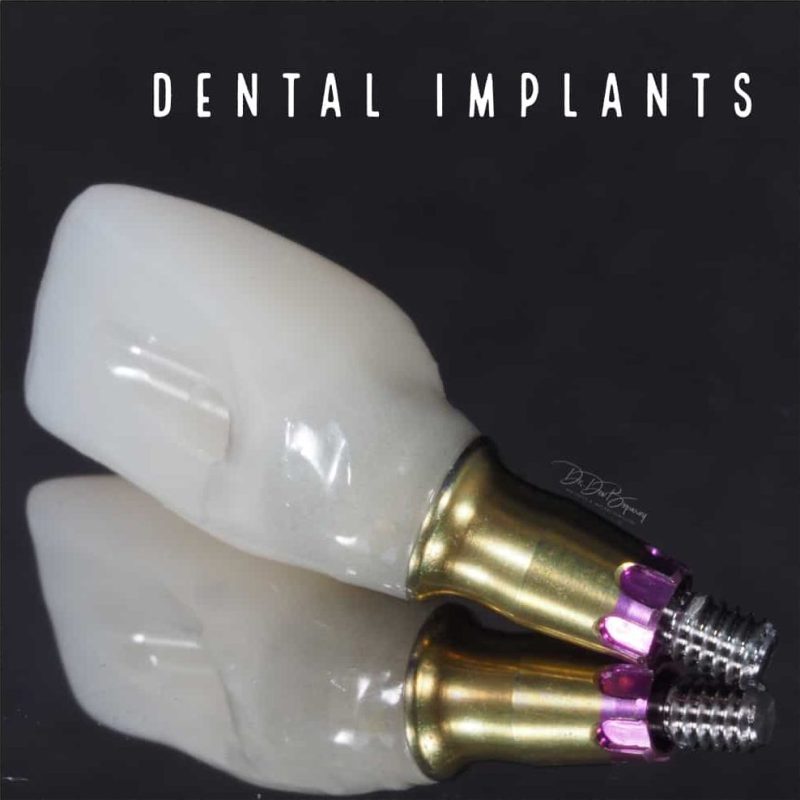
What is a single implant?
A single implant is a type of dental implant that is used to replace a single tooth. The implant consists of a titanium screw placed into the jawbone, and an artificial tooth is attached to the screw. Single implants are generally considered to be more effective than other methods of replacing missing teeth, such as bridges or dentures. They are also more expensive.
What is all on four dental implants?
All on four dental implants are a type of dental implant used to support a complete set of dentures. All on four dental implants are a popular choice for people who have lost all their teeth due to injury, disease or wear and tear. The implants are comfortable and natural-looking, and they can help to improve the function of your teeth. Unlike traditional dental implants, All-on-four implants do not require individually placed implants for each tooth. Instead, four implants are placed in the jawbone, and the dentures are then attached to the implants. All-on-four implants have several advantages over traditional dental implants, including a shorter treatment time, reduced surgical trauma, and a lower risk of implant failure. All-on-4 implants are also a more cost-effective treatment option than traditional dental implants. If you are considering All on four dental implants, be sure to consult with an experienced implant dentist to ensure that All on four is the right treatment option for you. The cost of four dental implants can vary depending on factors like location, materials, and additional procedures, but it’s a worthwhile investment for a more secure and stable smile.
All on 6
All on six dental implants, what is the difference? All on six dental implants are a type of dental implant that is used to provide support for an entire arch of artificial teeth. The all-on-six dental implant procedure involves surgically placing six titanium posts into the jawbone, which will serve as a foundation for the artificial teeth. All six implants are considered a more permanent solution than dentures, and they can also help improve the function and appearance of your smile. One of the main advantages of all on six implants is that they can help preserve bone loss in the jawbone. They can also provide more stability than dentures, making it easier to eat and speak.
What is a bridge implant?
A bridge implant is a medical device that is used to support a dental bridge. The implant is placed into the jawbone and acts as an anchor for the dental bridge. The implant is typically made of titanium and is inserted into the jawbone during surgery. The implant fuses to the bone over time, providing a sturdy foundation for the dental bridge. Bridges are typically used to replace one or more missing teeth. The bridge spans the space where the missing teeth are located and are held in place by the implants. Bridge implants are a safe and effective way to replace missing teeth and support a dental bridge.
What is the difference between a denture and an overdenture?
Dentures are false removable teeth that are worn to replace missing teeth. They are usually made of plastic or porcelain and are held in place by suction or a denture adhesive.
Implant overdentures are typically used when there are not enough healthy natural teeth remaining to support a traditional denture. Unlike conventional dentures, which rest on the gums, implant overdentures are securely anchored and do not require adhesive to stay in place. Additionally, implant overdentures can help to preserve the jawbone and prevent further tooth loss. They can improve chewing function and provide more excellent stability than a traditional denture. In addition, they can help to preserve the jawbone and prevent further tooth loss. Dentures can be worn during the day and removed at night, while overdentures must be removed nightly for cleaning. Overdentures are more stable than dentures, but they require additional care to clean around the abutment teeth.
Things To Take Care of After Implant Surgery
After implant surgery, taking care of yourself and the surgical site is essential to ensure proper healing. Here are a few things to keep in mind:
- Get plenty of rest and avoid strenuous activity for the first week or two. This will allow your body to heal and reduce the risk of bleeding or infection.
- Keep the surgical site clean and dry. You may be instructed to use a particular cleaning solution or antibacterial ointment. Be sure to follow your surgeon’s instructions carefully.
- Eat a healthy diet and drink plenty of fluids. This will help your body to heal and reduce swelling.
- Take any pain medication as prescribed by your surgeon.
- Avoid smoking, as this can slow down the healing process.
- Contact your surgeon if you have any concerns or problems after surgery.
- Brush your teeth at least twice a day with a soft-bristled toothbrush. Be sure to use circular motions rather than scrubbing back and forth, which can damage the implant.
- Floss daily to remove plaque and bacteria from around the implant. Use an interdental brush or floss threader if standard floss is challenging to maneuver.
- Visit your dentist regularly for professional cleanings and check-ups.
- Avoid smoking, which can increase the risk of implant failure.
These simple tips can help ensure that your dental implants last for many years.
The Pros of dental implants
Dental implants are the next best thing to healthy, natural teeth. If you have been considering getting an implant or would like to know more about them, we have put together a list outlining the advantages of a dental implant against other alternative options. The pros of dental implants are:
- Permanent tooth replacement
- Look and feel natural
- Prevent bone loss
- Improve functionality and enjoy the foods you love
- Low maintenance
Permanent tooth replacement:
Dental implants are made from titanium, meaning not only are they very durable but also biocompatible. This allows the jaw to grow new bone around the implant once inserted, allowing for a strong foundation firmly in position and mimicking the root of a natural tooth.
The replacement tooth attached to implants can be subject to wear and tear over time and may need replacing after several years, but the underlying implant is incredibly strong. It will usually last a lifetime with proper care.
Natural aesthetics:
Although an experienced prosthetist can produce a natural-looking dental bridge or denture, there may still be ongoing issues such as dentures slipping, producing clicking sounds, shifting out of place or affecting your speech. Dental implants support the structure beneath the gum and allow for a more solid and permanent foundation. Therefore these disadvantages can be avoided with implants.
With dental implants, most people find that eating and speaking feels more natural due to the replacement tooth’s corresponding strength, durability and stability to a healthy natural tooth.
Prevent Bone Loss:
Our teeth are anchored and supported by the jaw, and the teeth also support the jaw. Therefore, when there is tooth loss, the bone underneath will no longer be stimulated to regenerate and can start to deteriorate over time. This can cause premature ageing of the face when multiple teeth are missing, as there is often a noticeable jaw shrinking. When a dental implant is surgically inserted into the jaw, it not only supports the jaw but can stimulate new tissue growth, which is known as osseointegration.
Improved functionality:
When you have traditional dentures or dental bridges, your dentist often recommends avoiding certain food types that may cause them to become damaged or loose. This is often associated with rigid, crunchy and sticky chewy foods. In contrast, the tooth replacement on a dental implant stays in place and will not shift or dislodge, allowing you to enjoy the foods you love and not give up particular foods.
Low Maintenance:
Dentures need to be cleaned daily and removed, and stored in a solution overnight to prevent bacteria. Whereas with dental implants, you follow good oral hygiene as usual with your natural teeth. This means:
- Brushing your teeth and prosthetic teeth twice a day
- Flossing daily removes trapped food and bacteria between teeth to prevent gum disease
- Minimizing on sugar to decrease your risk of tooth decay
- Increasing drinking water for hydration and getting the oral health benefits of fluoride
- Keep up with six monthly dental hygiene appointments to ensure your gums, teeth, and implant are healthy.
The Cons of Implants
Dental implants are a popular tooth replacement option that can offer many benefits. However, some potential drawbacks exist before deciding if dental implants are right for you. One of the main disadvantages of dental implants is the cost. The upfront cost of dental implants is typically much higher than other tooth replacement options, such as dentures or bridges. In addition, dental implants require a surgical procedure, which can add to the overall cost. Another potential downside of dental implants is the risk of infection. The implant site must be kept clean to reduce the risk of infection, which can be difficult for some people to do.
Additionally, dental implants can take several months to heal, and you may experience discomfort and swelling during this time. Finally, there is a small risk that the implant may not fuse properly with the bone and must be removed. Overall, dental implants can offer many benefits, but weighing the pros and cons before deciding is essential. Talk to your dentist to see if dental implants are right for you.
How long do dental implants last, and how often do they need to be replaced?
Dental implants are a popular and effective way to replace missing teeth. But how long do they last? And how often do they need to be replaced?
Dental implants can last a lifetime with proper care. But like any other dental device, they can also be susceptible to wear and tear. The good news is that dental implants can usually be repaired or replaced if necessary.
While dental implants are solid and durable, they are not invulnerable. They can be damaged by chewing hard foods or grinding your teeth at night. And like natural teeth, they can also be affected by gum disease.
If you have dental implants, it’s essential to take care of them just as you would your natural teeth. That means brushing and flossing daily and seeing your dentist regularly for check-ups and cleanings. If you do all these things, your dental implants should last a lifetime.
With proper care, they can last a lifetime. However, over time the bone around the implant may begin to deteriorate. This is known as bone loss and can eventually lead to implant failure. To help prevent bone loss, it’s essential to practice good oral hygiene and visit your dentist regularly for check-ups. How often do dental implants need to be replaced? In most cases, they do not need to be replaced. However, if an implant does fail, it will need to be removed and replaced with a new one.
Dental Implants at The Smile Designer Dental Studio
At The Smile Designer Dental Studio, we offer the most innovative technological advances and solutions to give you the most natural-looking and long-lasting dental
implants that will restore your confidence to smile again. Dental implants have a success rate of 95%, and we will ensure to bring you a resolution to any difficulties and complications you have with your smile. Book in today for a dental implant consultation at The Smile Designer Dental Studio and start your smile journey today.




















